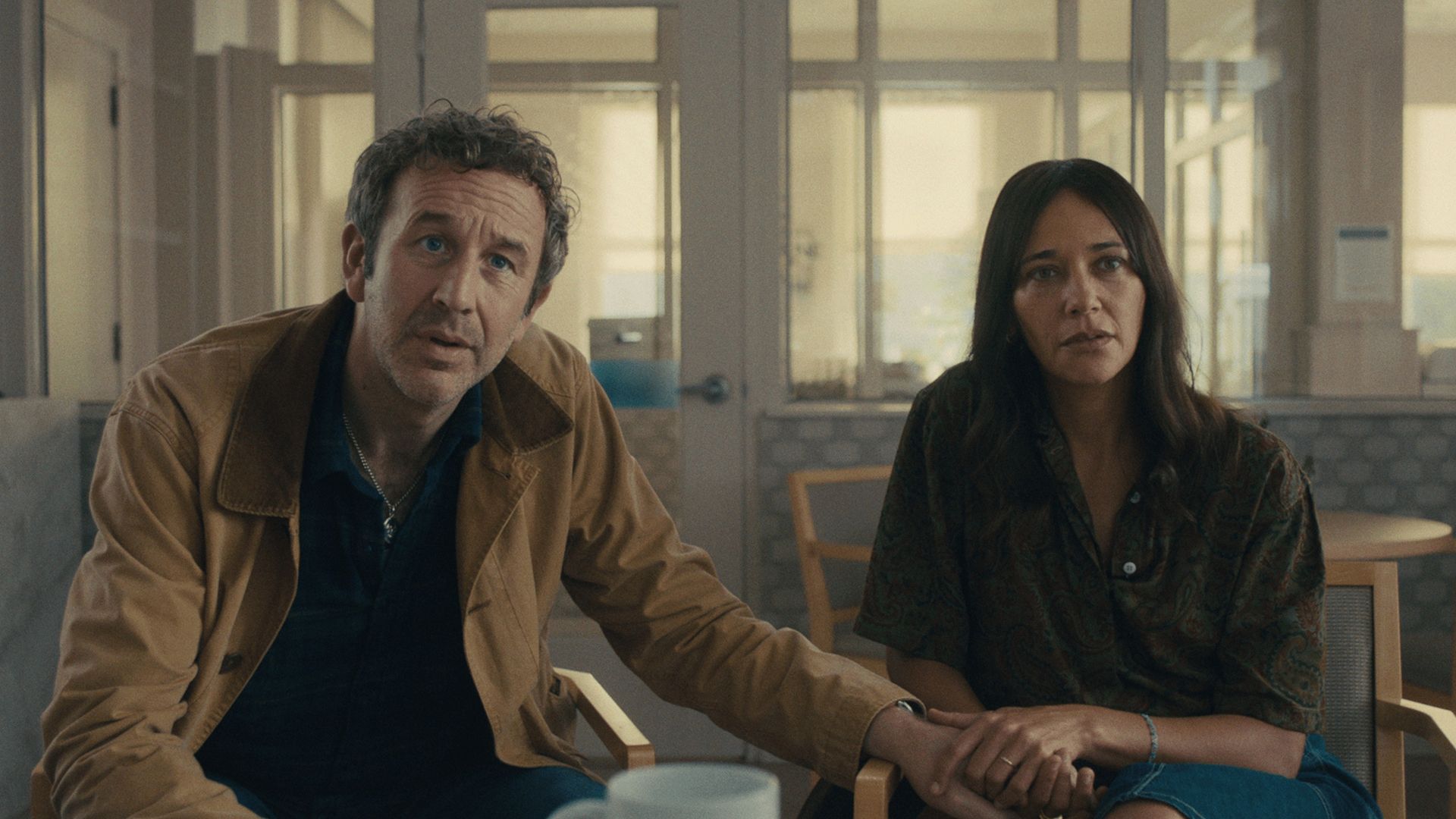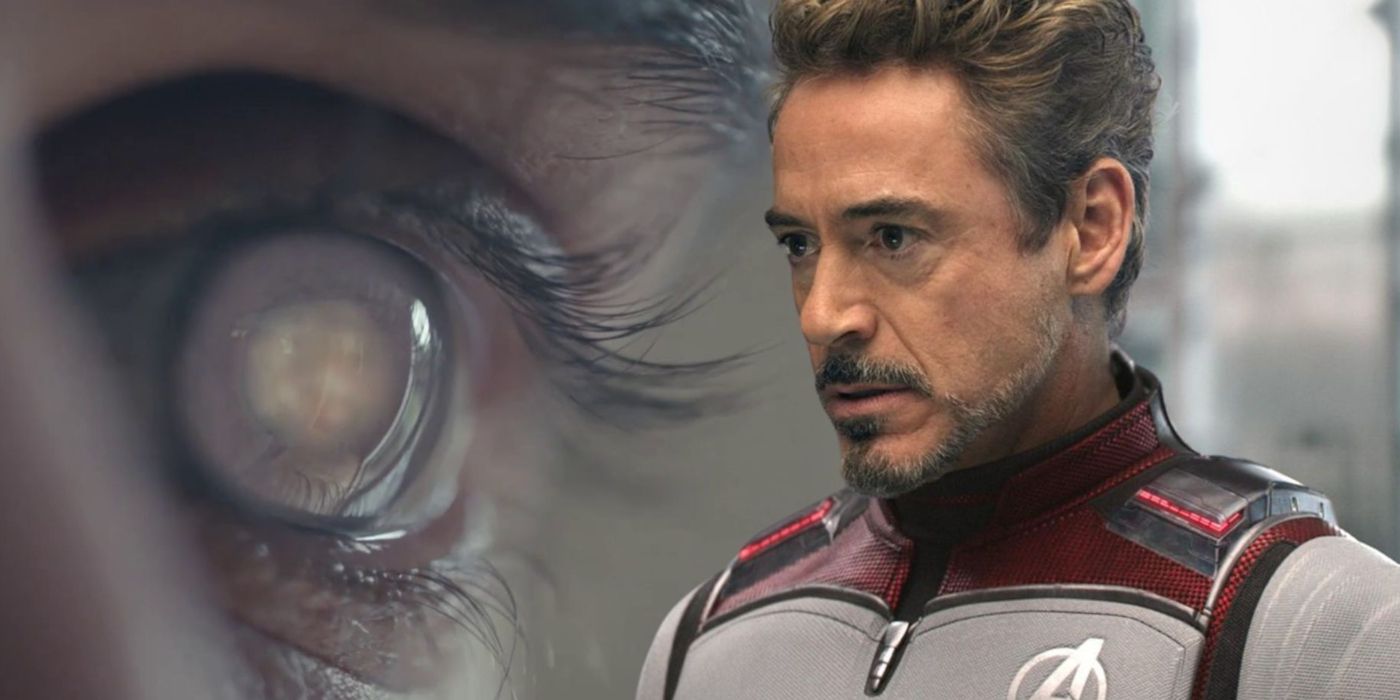For nearly 15 years, Black Mirror has consistently crafted bracingly bleak, darkly funny parables of life in an increasingly tech-dependent world. Charlie Brooker’s anthology series has proven surprisingly malleable over its seven seasons, telling tales that mine humanity’s relationship to technology to both chilling and heartwarming effect. Some of its most beloved episodes are more lighthearted, like Season 3’s VR love story “San Junipero,” but it’s often the darker outings that linger longest in viewers’ memories.
Season 7 opens with one such story, “Common People,” and it might be one of the best — and most upsetting — episodes the series has done so far. Starring Chris O’Dowd and Rashida Jones as Mike and Amanda, a married couple who sign up for a subscription service to save Amanda’s life after a terminal brain tumor diagnosis, the episode does what Black Mirror does best: take a real-world phenomenon and twist it to disturbing extremes. In this case, it’s an experience that’s become entirely too common online in recent years.
Black Mirror
- Release Date
-
December 4, 2011
- Network
-
Channel 4, Netflix
Online Platforms’ Slow Decline
“Common People” chillingly satirizes a concept that nearly anyone who’s spent time online has likely noticed. A service or platform starts out great for users, only to slowly degrade over time as the company favors maximizing profits for shareholders over their customers’ experience. Often, this takes the form of increasingly relying on ad revenue, raising subscription prices, and in the case of streaming services, shrinking library sizes. It’s possible to see examples of this in nearly every corner of the internet, from streamers getting increasingly expensive to social media feeds filled with ads and AI-generated slop.
It’s a phenomenon that started to grow more noticeable as early platforms matured in the late 2010s and early 2020s, and gained greater prominence after writer Cory Doctorow gave it a very appropriate name: “ensh*ttification.” Doctorow first used the term on his blog in 2022, and it’s become a widely accepted name for the practice, which has been applied to everything from Netflix’s ad-supported tier to Twitter’s controversial transformation into X or Amazon forcing third-party sellers to bid for better page placement. Doctorow argues that many online platforms initially operate at a loss in their early days, bringing in customers and business suppliers with the promise of value before finding ways to squeeze them for profit, making the experience of actually using the platform incrementally worse.

Related
Rashida Jones & Tracee Ellis Ross Reveal the Secrecy of Making a ‘Black Mirror’ Episode
Jones and Ross star in the first episode of ‘Black Mirror’ Season 7, “Common People,” and discuss the show and the secret production.
“Common People” Explores the Ensh*ttification of the Mind
With Netflix often accused of ensh*ttifying their platform through frequent price increases and the introduction of ads, “Common People” feels a bit like Black Mirror taking aim at its streaming home, something they’ve giddily done in the past. The episode takes the idea of ensh*ttification to an absurd extreme when Mike signs Amanda up for a service called Rivermind, which will replicate the tumorous part of her brain and replace it once the tumor is removed, and they’ll even do the surgery for free. But there’s a catch: after the surgery, it’s a $300/month subscription to keep Amanda’s brain active.
Rivermind’s representative Gaynor (Tracee Ellis Ross) ensnares a grieving Mike with the great-sounding promise of having his wife back, but the experience quickly turns nightmarish. First, they’re forced to upgrade to “Rivermind Plus” for an additional $500/month in order to be able to leave the very narrow service area they’re given and turn off the targeted ads that “common” users like Amanda are forced to parrot without their knowledge. Before long, Amanda finds that she’s sleeping up to 16 hours a night without feeling rested, as her processing power is harnessed to help support the even more expensive “Rivermind Lux” package. Gaynor cheerily tells them that all their problems with the service can go away — as long as they’re willing to keep spending more money.

Related
One of ‘Black Mirror’s Best Episodes Was This Close To Becoming a Robert Downey Jr. Movie
Back in 2013, the Oscar-winning Marvel star bought the rights to the acclaimed episode, written by future ‘Succession’ creator Jesse Armstrong.
As Mike and Amanda grow increasingly desperate to come up with the funds to pay for a rapidly degrading service, they also become effectively trapped, since Amanda’s brain is on subscription and stopping the service would essentially be a death sentence. It’s a brilliant and chilling expansion of the ensh*ttification experience, taking it out of the realm of life online and into the real world. It echoes a larger complaint that many have with an increased reliance on streaming services, where the user doesn’t actually own any of the content they’re enjoying. A user could cancel their Netflix subscription if it gets too expensive or they no longer find value in the service, but that’s a little bit harder to do when the subscription is for life itself.
Black Mirror has frequently shown a willingness to play with its own format, proving that it’s capable of telling all kinds of stories under its shiny black umbrella. Many of these diversions have proven very fruitful, but “Common People” is a reminder of what made the show such a success in the first place: its ability to tell stories that take ordinary human experiences to frightening extremes, exploring all the perilous potential paths we might be led down by our enmeshment with technology.
Source link

















Add Comment